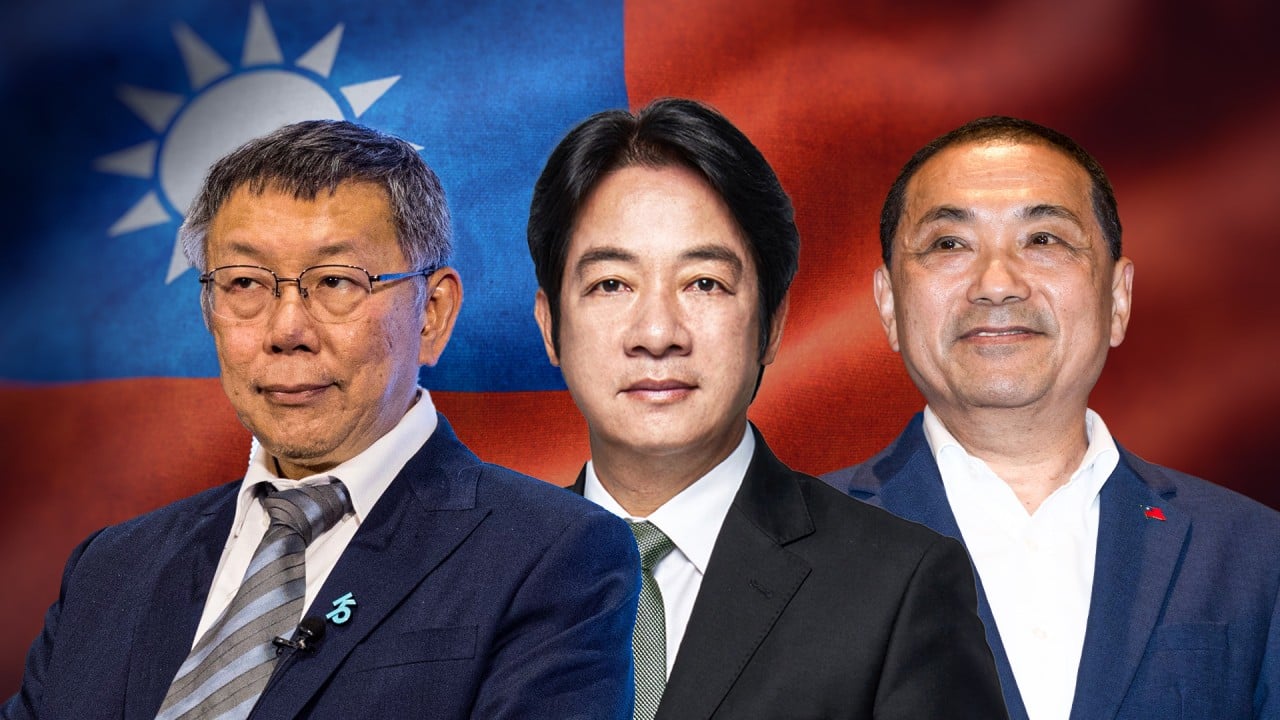
Chinese Communist Party liaison chief meets Biden security aide to explain Taiwan ‘red line’
- Liu Jianchao, head of international liaison for the Communist Party, is highest-ranking Chinese official to visit the US since Xi-Biden summit
- Observer says busy overseas schedule shows Liu may be sharing the burden of Foreign Minister Wang Yi, whom he is widely expected to succeed
“The two sides had candid and constructive discussions,” a statement from the White House said. This included “challenges in the Middle East, Russia’s war against Ukraine, and cross-strait issues”, where Finer “stressed the importance of peace and stability across the Taiwan Strait and in the South China Sea”.
Communist Party diplomat, on US visit, urges ‘correct’ understanding of China
The two sides also “reaffirmed support for continued high-level diplomacy and interactions” between the US and China, and discussed cooperation to combat drug trafficking.
Both the White House and official Chinese readouts referenced the November summit between Biden and Chinese President Xi Jinping in San Francisco.
“[Finer and Liu] agreed that they should make joint efforts to implement the important consensus reached by the two leaders, and continue to maintain communication, exchange and cooperation for achieving this goal,” the Chinese readout said.
Taiwan central to US-China relations
It also affirmed that Liu, the highest-ranking Chinese official to visit the US since the Xi-Biden summit, “stated China’s positions on issues like Taiwan and the South China Sea”.
Beijing sees Taiwan as part of China, to be reunited by force if necessary. Most countries, including the US, do not recognise Taiwan as an independent state, but Washington is opposed to any attempt to take the self-governed island by force and is committed to supplying it with weapons.
On Tuesday, at an event hosted by the Council on Foreign Relations in Washington, Liu made clear that Taiwan was central to Beijing’s relations with the US.
“Having engaged with each other for such a long time, both China and the United States know too well each other’s core interests and red lines that can never be crossed,” Liu said.
Washington watchful of ‘unpredictable’ Beijing response to Taiwan election
“For China, the Taiwan question is at the very core of the core interests. It’s the red line that must never be crossed.”
Beijing’s foreign ministry echoed those words, with spokeswoman Mao Ning saying Washington should avoid sending the “wrong signals” to Taiwan.
“We urge the US side … to stop interfering in the local elections in Taiwan in whatever ways, and stop sending wrong signals to ‘Taiwan independence’ separatist forces,” Mao said on Thursday.
Presidential front runner William Lai Ching-te of Taiwan’s ruling US-friendly Democratic Progressive Party has been denounced as a separatist and “troublemaker” by Beijing, which has cast Saturday’s election as a choice between war and peace.
Willingness to broaden communication
Josef Gregory Mahoney, professor of politics and international relations at Shanghai’s East China Normal University, said Beijing may utilise Liu’s trip for a dialogue with the US over the Taiwan elections, to avoid misjudgments over the result.
He said that the meeting between Liu and Finer showed willingness from both sides to broaden and enhance channels of communication.
“This meeting is an ongoing effort to communicate at high levels, and at the same time, using different personnel. [It] has the effect of expanding the dialogue, growing the relationship, and promoting more mutual understanding and people-to-people ties,” Mahoney said.

The International Liaison Department headed by Liu typically focuses on party-to-party relations with foreign and socialist countries, while leaving state-to-state ties to the foreign ministry.
But Liu has become more active in recent months in meeting foreign diplomats and building Beijing’s image overseas.
He has toured several countries in Asia, Europe and Africa since taking office in June 2022. He has also held talks with more than 200 foreign dignitaries and diplomats in Beijing, including two meetings last year with US ambassador Nicholas Burns.
Mahoney said the frequent exchanges with foreign leaders reinforced the party’s goal of tighter control over foreign affairs – an objective set out in a central leadership meeting on foreign policy last month.
Is Liu Jianchao being groomed for a higher post?
Dylan Loh, an assistant professor of foreign policy at Nanyang Technological University in Singapore, said that Liu’s department and the foreign ministry were distinct but their roles were increasingly intertwined.
“I do expect to see the International Liaison Department playing a bigger role in the years ahead, particularly in cultivating [ties with] political parties of other countries from a geopolitical angle,” he said.
Mahoney said Liu’s busy travel schedule suggested that he might be sharing some of the burden of Foreign Minister Wang Yi, who is also the party’s foreign policy chief.
KMT presidential hopeful’s ‘middle path’ slowed by party’s bid to stay relevant
“It might be the case that Wang Yi is too busy given his dual roles, with Liu effectively supporting him but also keeping Wang in reserve for more substantial conversations,” Mahoney said.
“Another possibility is that Liu is being groomed for a higher post.”
Liu, 59, is believed to be on a three-city tour of the United States, with the first stop New York on Monday. He will next lead his delegation to San Francisco.
He is widely seen as the leading contender to take over from Wang, who – at 70 – is well over the informal retirement age of 68 for the top leadership.


